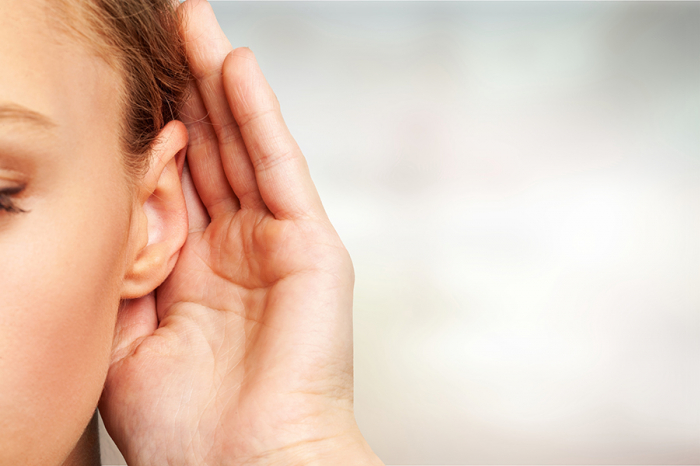Yet many shy away from hearing tests. Why? Perhaps we fear it makes us appear older than we feel. Old-style hearing aids – quite large and unsightly – have a lot to do with it, too.
Meanwhile, there are plenty of new ways to protect our hearing and, if necessary, support or enhance it, from cochlear implants to tiny digital hearing aids. We chat to two experts for advice – ENT surgeon Professor Chris Raine, and audiologist Tanya Hanekom.
What causes age-related hearing loss?
First, let’s get to grips with a ‘normal’ hearing range. Sounds are described by frequency or pitch (which is high or low) and by their intensity or loudness.
For frequency, the average range is from 20 to 20 000 hertz. For loudness, on average, we can hear sounds from 0 up to 140 decibels, but sounds over 90 decibels are uncomfortable to hear.
With presbycusis, high frequencies are often affected first. This is problematic when trying to understand the conversation, as most consonant sounds have high frequencies.
Ageing can result in what’s called sensorineural hearing loss, which happens when there’s damage to the hearing nerve, or to the tiny inner-ear hair cells within part of the ear called the cochlea; sometimes, it’s damage to both.
On the horizon, exciting research is being conducted to discover how to regrow the hairs in the inner ear where damage to hearing occurs.
What about ear blockages?
Another type of hearing loss is called conductive. This can be due to a blockage in the outer or middle ear caused by a build-up of excess earwax, fluid from an ear infection, or ruptured eardrums. Severe cases may be due to otosclerosis. – abnormal growth of bone in the middle ear, which stops sound being transmitted into the inner ear.
Researchers at University College London recently found mutations in a gene called SERPINF1 that may cause otosclerosis, opening up the possibility of new treatments down the line.
When earwax is a problem
A plug of hard wax can result in noticeable hearing loss. While some people simply produce more wax than others, as we age, the wax becomes drier and is more likely to compact.
If wax still remains, select Clicks Clinics offer ear syringing using modern pulsed-water jets, but you often have to soften wax by using drops for up to three days beforehand.
Can loud music really hurt my ears?
Yes, overexposure to loud noise (whether you are in a band or the audience) is known to damage hearing.
Encourage young people to wear ear defenders, such as earplugs, if they go to festivals and gigs. You may already have suffered temporary hearing loss after going to a concert.
Can I use a cell phone if I have a hearing aid?
“Hearing aids are now made to work in tandem with iPhone and Android devices, and are compatible with most smartphones via brand-specific apps that allow you to adjust programmes, volume and microphone settings,” says Tanya. “The apps stream calls and music to your hearing aids.”
Could a cochlear implant help?
If you struggle to hear a lawnmower, your hearing loss is above 90 decibels, and cochlear implants are suitable.
These are surgically inserted hearing aids consisting of an external processor (which converts sound into an electrical signal) and an internal receiver that is surgically implanted into the bone behind the ear, with electrodes inserted into the cochlea. These implants bypass the damaged inner-ear hair cells, directly stimulating the hearing nerve.
More about:
















































